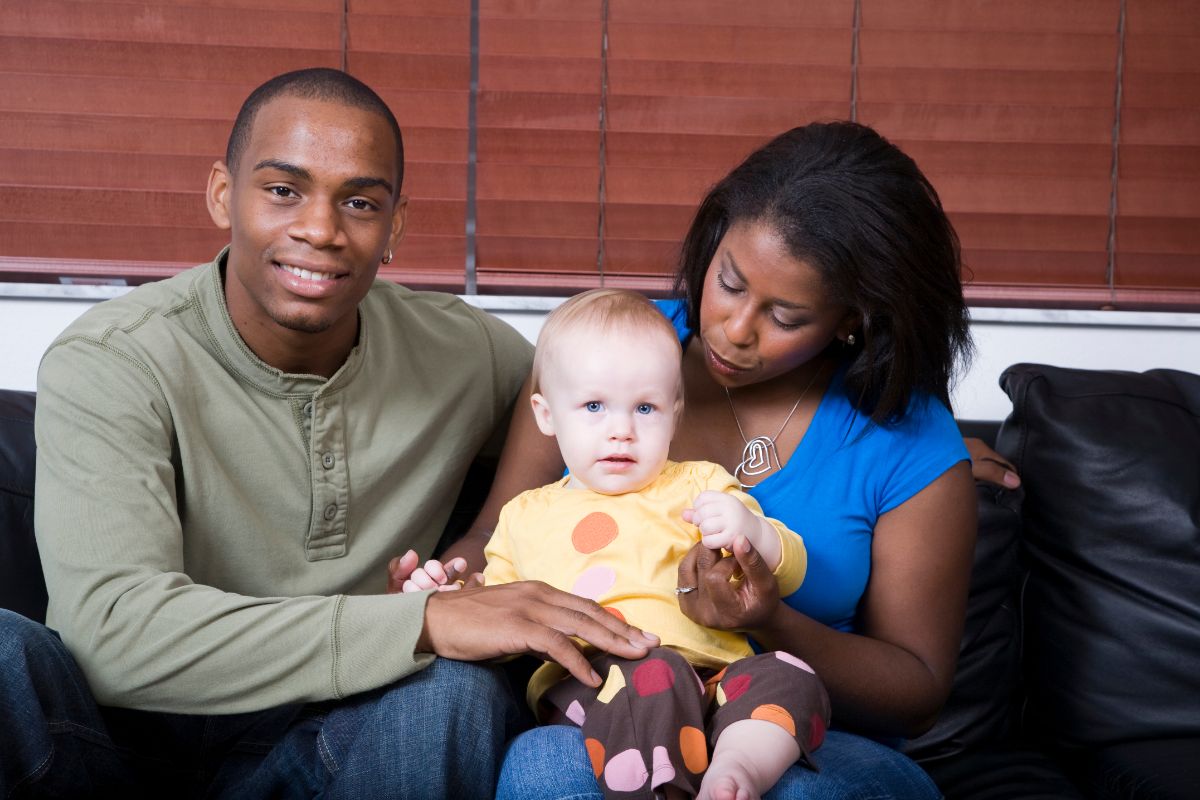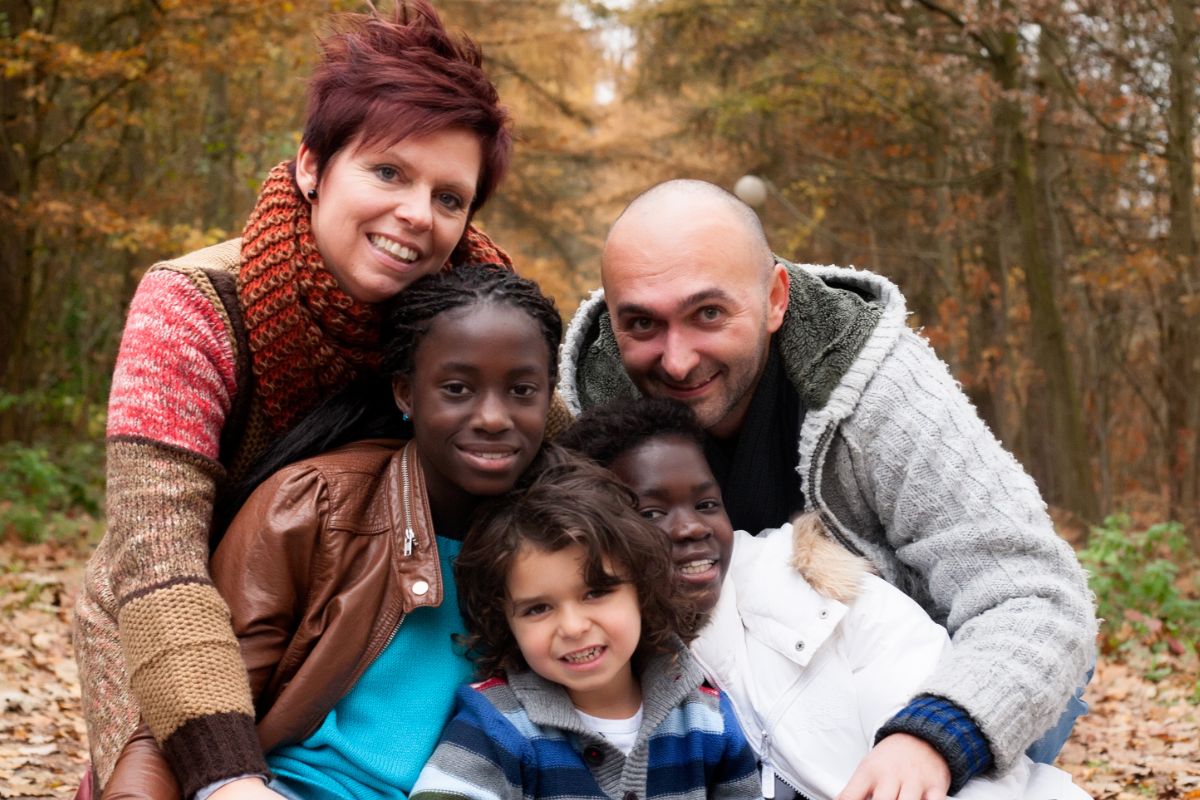While most people are legally allowed to adopt a child, there are some circumstances where adoption isn’t possible. A common adoption myth is that felons with a criminal record aren’t permitted to adopt a child.

However, only certain criminal convictions may mean you are barred from the adoption process. In this article, we take a look at adoption requirements and if you can adopt a baby or child with a criminal record.
Can You Adopt A Child If You Have A Criminal Record?
Yes, you can adopt a child if you have a criminal record. However, there are specific restrictions according to federal law and state laws. If you have past convictions related to child abuse, child neglect or violence, then a judge may not grant permission to adopt.
Depending on the specific nature of the crime you committed, you may be able to adopt a child.
Convictions That Automatically Stop You From Adopting
You are not allowed to adopt a child if you have a felony conviction for child neglect, child abuse, spousal abuse and any crime against a child. You are also banned from adoption if you have been convicted of child pornography, homicide, sexual assault and rape.
Felons with a conviction of alcohol-related offenses, drug-related offenses, battery or physical assault in the last five years are also automatically barred from adoption.
These rules apply to every felon, whether you are going through a juvenile dependency court, family court or an adoption agency. The time frames for when felons with a conviction not related to violence or child abuse are allowed to adopt a child can vary depending on the state you live in.
Convictions That May Ban You From Adopting
While some convictions automatically ban you from adopting a child, not all felons with a criminal record are barred from adoption. An adoption agency, a family court and a dependency court also screen for other factors than your criminal record.
If these factors are all positive and you don’t have any convictions for violence, murder or child-related abuse, then you may be able to adopt a child as a felon.
Factors That Are Considered For Felons Who Want To Adopt
Agencies and courts will do a full background check on your finances, emotional stability and physical wellbeing before they give permission for a felon to adopt a baby or child. Some of the most common factors that adoption agencies screen for are:
- Your ability to handle stressful situations
- Emotional stability and flexibility
- Your self-esteem
- Different relationships within your family
- How you handle risks and daily-life hazards
- Your ability to take responsibility for a minor
- Your personal motivation for adoption
- Your financial situation
- Your educational background
- Your work and home environment
Legal Adoption Requirements
Regardless of your criminal convictions, you will also need to fulfill the legal adoption requirements set out in federal law. There are also state-specific adoption requirements that you need to consider before applying for adoption.
Single Or Married Adoption
Some states require a couple to be married before they can start the adoption process. However, states such as Florida also permit adoption where couples aren’t married.
Some US states also allow you to adopt a child as a single parent, as long as they fulfill all other requirements.
Minimum Adoption Age

Adoptive parents have to be at least 21 years of age to adopt a child. However, this is a guideline often used by adoption agencies. There is no minimum or maximum age requirement for adoption in the United States.
Adoption agencies typically consider the individual circumstances of the prospective adoptive parents. While some agencies may feel reluctant to allow adoption by a senior citizen or a young adult, there are exceptions depending on the specific circumstances.
Criminal History
Felons can adopt a child, depending on their criminal conviction. Some types of offenses may bar a person from adoption. Adoption agencies do careful criminal background checks that ensure that the home life of the adoptee is secure for the child (see also “6 Best Background Checks For Adoptive Parents“).
If these background checks show criminal records for abuse, child neglect, abandonment, violence or homicide, then the felon isn’t legally permitted to adopt a child in the US. Some states also ban felons from adoption who live in the same household as other felons who committed serious crimes.
Health Requirements
Your personal health is an essential consideration in the adoption process. If you struggle to raise a child due to a serious health condition, then this could impact the well-being of your adopted child.
Adoption agencies screen your medical history, including all medical records. You may also be asked to undertake a physical check-up. Many US states bar discrimination against prospective parents who have a disability.
Only if your disability prevents you from looking after the child properly, you may be barred from the adoption process.
Financial Requirements
Growing your family comes at an additional cost that you need to consider when you are looking to adopt. Regardless of the type of adoption, domestic or international adoption, you can expect the adoption process to be expensive.
Adoption agencies and courts check your financial stability to ensure that the child has everything he/she needs. This being said, there are also financial support programs for prospective adoptive parents.
Emotional Requirements
Adoption professionals want to ensure that a child is placed in a stable home with lots of love and care. While there are no specific emotional requirements set in law, many adoption agencies advise prospective parents to be fully emotionally prepared for the challenges of raising a child.
Parents should consider a variety of different emotional aspects and agencies recommend to:
- Communicate openly with your spouse about the adoption
- Fully accept responsibility for your adopted child
- Understand the adoption process and its requirements
- Work through any emotional hardships, such as miscarriage, infertility, past abuse
Final Thoughts
While felons are allowed to adopt a child in some situations, people with a criminal record in child abuse, violence and murder are automatically banned from adopting a child.
- 10 Best States For Families - March 6, 2023
- Can A White Couple Adopt A Black Baby? - March 1, 2023
- Best DNA Tests For Adoptees - February 28, 2023










